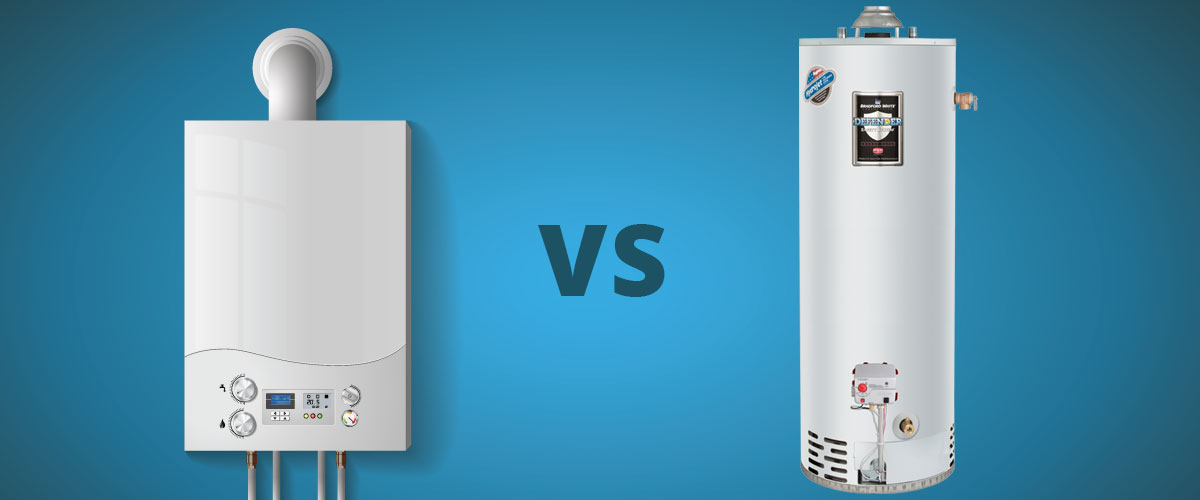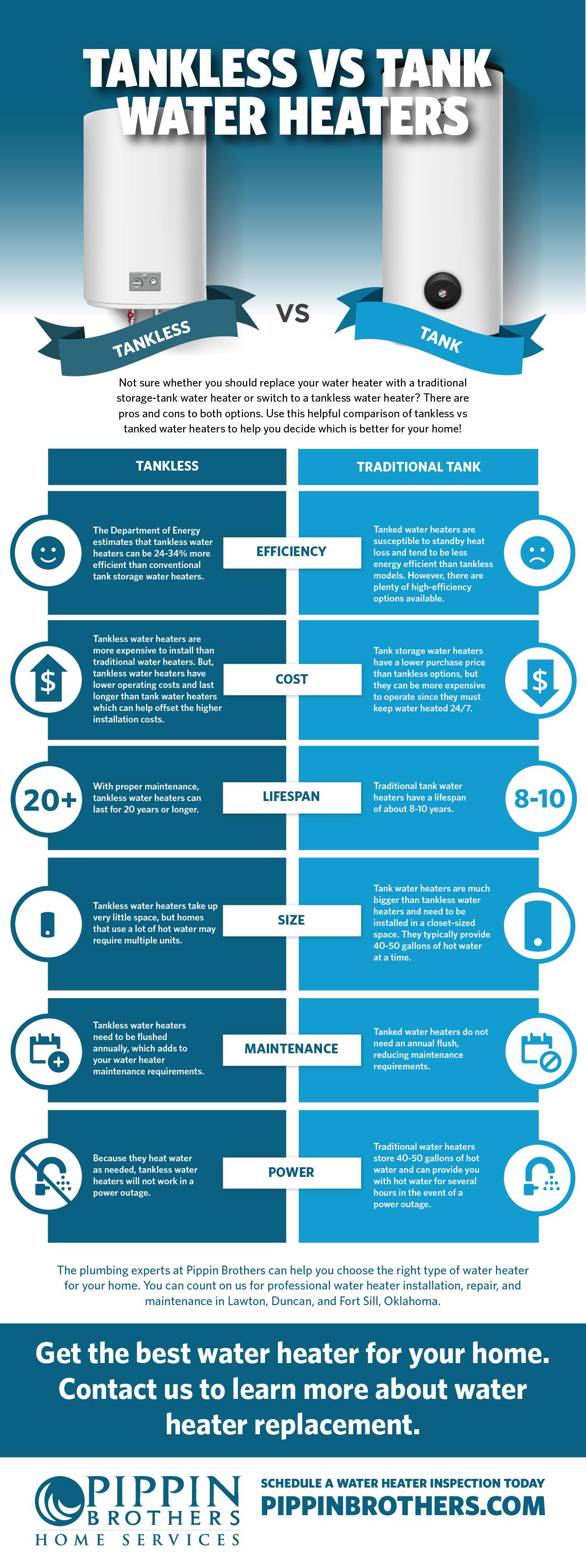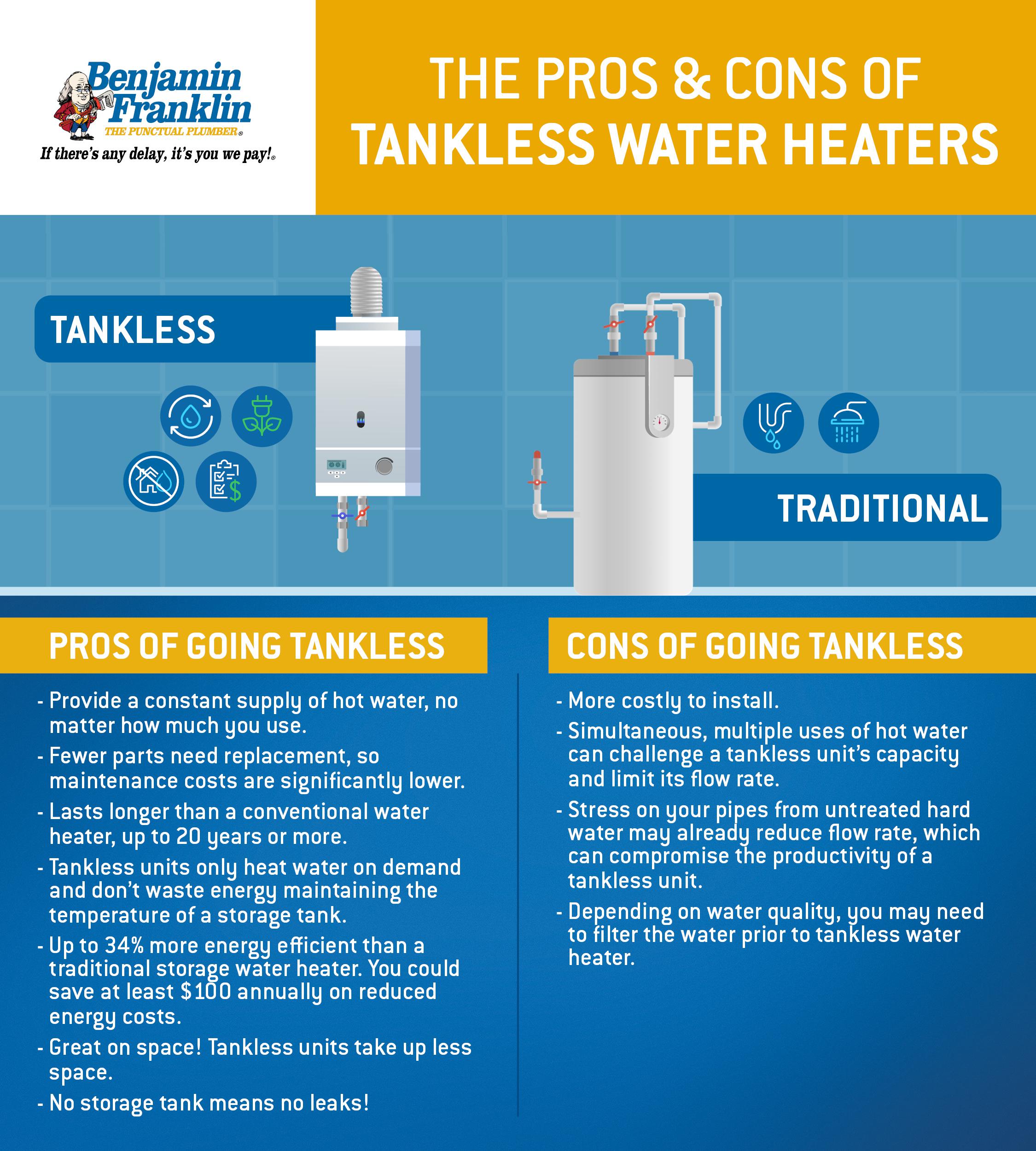Are you tired of running out of hot water during your morning shower? Or perhaps you’re looking to cut down on your energy bills without sacrificing comfort?
When it comes to choosing the right water heater for your home, the debate between tank and tankless models can be overwhelming. Each has its unique benefits and drawbacks, and making the wrong choice could lead to unnecessary expenses and inconvenience.
But don’t worry; you’re about to discover the key differences that will help you make an informed decision. By the end of this article, you’ll know exactly which option suits your lifestyle and budget best. So, let’s dive into the details that could transform your daily routine and save you money. You won’t want to miss this!

Credit: luxuryheatingco.com
Page Contents
Tank Water Heater Basics
Tank water heaters are a popular choice for many households. They store hot water in a large tank for immediate use. These heaters are common due to their reliability and straightforward design. Understanding how they work, their features, and their pros and cons helps in making an informed decision.
How They Work
Tank water heaters heat water and keep it hot until needed. A burner or electric element warms the water inside the tank. When hot water is used, cold water replaces it. The heater reheats the cold water to maintain the supply. This cycle ensures you have hot water ready at all times.
Common Features
Tank heaters often come with a thermostat to control water temperature. They usually have a capacity of 20 to 80 gallons. Insulated tanks help retain heat. Some models include pressure relief valves for safety. Various brands offer energy-efficient options to save on utility bills.
Pros And Cons
Pros:Tank water heaters are cost-effective and easy to install. They provide a steady supply of hot water. Their simple design makes repairs straightforward.
Cons:They occupy a significant amount of space. Standby heat loss occurs as energy is used to keep the water hot. This can lead to higher energy costs. Large tanks may require extra maintenance.
Tankless Water Heater Basics
Tankless water heaters are gaining popularity in modern households. They offer an efficient way to heat water without the need for a storage tank. Understanding their basics can help homeowners make informed choices. This section dives into what makes tankless water heaters unique.
Operational Mechanism
Tankless water heaters heat water directly. When a hot water tap is turned on, cold water travels through a pipe. It then enters the unit where it gets heated. The heating is done either by a gas burner or an electric element. This means you get a constant supply of hot water. Unlike traditional tanks, they don’t store hot water. They heat water only as needed.
Key Characteristics
Tankless water heaters are compact and space-saving. They mount on walls, freeing up valuable floor space. Their design is sleek and modern. They are energy-efficient since they don’t heat water continuously. They typically have a longer lifespan compared to tank heaters. Maintenance is often less frequent. Their initial cost might be higher, but long-term savings are substantial.
Advantages And Disadvantages
Tankless heaters provide endless hot water. Energy bills can be lower due to their efficiency. They take up less space in your home. Installation can be more complex. Upfront costs are generally higher. Their flow rate might not meet high demand periods. Multiple units may be needed for larger homes. Regular maintenance is crucial to prevent scale build-up.
Energy Efficiency
Choosing the right water heater can impact your home’s energy usage. Energy efficiency is a key factor to consider. Both tank and tankless water heaters offer different levels of efficiency. Understanding these differences can help you make the best choice.
Comparative Energy Usage
Tank water heaters store water in a large tank. They use energy to keep the water hot at all times. This constant heating consumes more energy. Tankless water heaters, on the other hand, heat water on demand. They only use energy when you turn on the tap. This leads to less energy usage overall.
Impact On Utility Bills
Energy efficiency directly affects your utility bills. Tank heaters often cause higher bills because they use more energy. With tankless water heaters, you may notice lower bills. They use energy only when needed, reducing costs over time. This can lead to significant savings monthly.
Installation And Space
Choosing between a tank and tankless water heater affects installation and space. Each type has unique requirements and challenges. Understanding these can help make an informed decision.
Space Requirements
Tank water heaters need more space. They store water in large tanks, usually between 30 to 60 gallons. This requires a dedicated area, often in a basement or utility room. Tankless water heaters are compact. They mount on walls, saving floor space. Ideal for small homes and apartments. They can fit in closets or tight spaces.
Installation Complexity
Installing a tank water heater is straightforward. It involves connecting water and power lines. Tankless models are more complex. They need precise placement and venting. Gas models require additional gas line work. Installation may take longer due to these factors. Professional installation is often recommended for both types.
Cost Implications
The installation cost varies significantly. Tank models are cheaper to install. The process is simpler and quicker. Tankless heaters have higher initial installation costs. They need specialized equipment and expertise. Over time, tankless units may save money on energy. They only heat water when needed. Consider both upfront and long-term costs when deciding.
Performance And Reliability
Choosing between a tank and a tankless water heater impacts performance and reliability. Both types have unique advantages. Understanding their performance helps in making an informed decision. Let’s dive into the key aspects.
Water Heating Speed
Tank water heaters store hot water. They heat water in advance, ready for use. This means instant hot water, but only until the tank runs out. Recovery time is required to reheat.
Tankless heaters provide hot water on demand. Water heats as it passes through. This means endless hot water. No need to wait for a tank to refill. Ideal for larger households.
Temperature Consistency
Tank heaters can experience fluctuations. As the hot water depletes, temperatures may drop. Consistent supply depends on tank size and insulation quality.
Tankless heaters offer consistent temperatures. Advanced technology controls temperature precisely. No fluctuation, even with high demand. Perfect for consistent comfort.
Maintenance Needs
Tank water heaters need regular maintenance. Sediment build-up can occur in the tank. Periodic flushing is necessary to maintain efficiency.
Tankless heaters require less maintenance. They are less prone to sediment issues. An annual check-up ensures optimal performance. Simpler maintenance means fewer headaches.

Credit: www.pippinbrothers.com
Cost Analysis
Choosing between a tank and a tankless water heater involves understanding costs. Each type has different financial implications. We will explore these aspects to help you make an informed decision.
Initial Investment
Tank water heaters are generally cheaper upfront. They range from $300 to $1,500. Installation can add another $500 to $1,000. Tankless water heaters are more expensive. Prices start at $1,000 and can go up to $3,000. Installation costs might reach $1,500. This initial price difference is significant.
Long-term Savings
Tankless heaters save money over time. They are more energy-efficient. This efficiency reduces monthly bills. Savings can be up to 30% on energy costs. Tanks may have higher operating costs due to energy usage. They heat and store water continuously. This leads to higher utility bills.
Repair And Replacement Costs
Repair costs for tank heaters are usually lower. Parts are cheaper and easier to find. Tankless heaters might have higher repair costs. They have complex components. Replacement costs vary. Tank heaters last around 10 to 15 years. Tankless heaters can last up to 20 years. Consider these factors when evaluating long-term expenses.
Environmental Impact
Choosing between a tank and tankless water heater is more than just a matter of preference—it’s a decision with environmental implications. As energy efficiency becomes crucial for homeowners, understanding the environmental impact of each option can guide you toward a more sustainable choice. Let’s dive into the key aspects of their environmental impact.
Carbon Footprint
Every appliance in your home contributes to your carbon footprint. Traditional tank water heaters typically consume more energy, leading to higher carbon emissions. They keep large quantities of water heated constantly, which can be wasteful.
On the other hand, tankless water heaters heat water on demand. This efficiency reduces energy consumption, thus lowering carbon emissions. Imagine a scenario where your energy bill doesn’t spike just because you enjoy long showers. That’s the promise of tankless units.
Sustainability Factors
Long-term sustainability is another critical consideration. Tank heaters often have shorter lifespans due to their constant operation, which means more frequent replacements. This leads to increased waste and manufacturing emissions.
Tankless heaters usually last longer, reducing the need for replacements. Their compact size also means fewer materials are used in their production. Have you ever considered how much waste you could reduce by simply choosing a more durable option? The impact could be significant.
Both options have pros and cons, but the choice is yours. Which heater aligns better with your values and lifestyle? Your decision could be a small yet powerful step towards a greener future. Wouldn’t it feel great knowing your home contributes less to environmental degradation?

Credit: www.benjaminfranklinplumbing.com
Choosing The Right Option
Deciding between tank and tankless water heaters depends on your home’s needs. Tank heaters store hot water, offering consistent supply, while tankless models heat water on demand, saving energy. Consider factors like space, budget, and hot water usage to make an informed choice.
Choosing the right water heater for your home can be a daunting task. With options like tank and tankless water heaters, making the right choice hinges on understanding your specific needs and circumstances. Let’s dive into the key factors you should consider to ensure you choose the best option for your household.Household Needs Assessment
Start by evaluating the hot water demand in your home. How many people live under your roof? A family of five will have vastly different needs compared to a single occupant. Consider your peak usage times. Do you all shower in the morning? A traditional tank water heater might be suitable for simultaneous showers, but a tankless option provides endless hot water, albeit at a higher upfront cost.Climate Considerations
Your local climate plays a crucial role in your decision. In colder regions, tankless water heaters may struggle to heat water efficiently due to lower groundwater temperatures. This can lead to lukewarm showers if the heater isn’t properly sized. On the other hand, warmer climates may benefit more from the energy efficiency of a tankless system, providing consistent hot water without the need to heat a large tank.Budget Constraints
Consider your budget for both initial investment and long-term expenses. Tank water heaters generally cost less upfront but can lead to higher energy bills over time. Tankless models, while more expensive initially, are often more energy-efficient, saving you money in the long run. Weigh the pros and cons of installation, maintenance, and energy costs. Can you afford the initial expense of a tankless model, or is a tank option more feasible for your current financial situation? Making the right choice isn’t just about the technology; it’s about aligning the technology with your lifestyle and needs. Have you considered all these factors? Which water heater aligns with your priorities?Frequently Asked Questions
Which Is Better Tank Or Tankless Water Heater?
A tankless water heater offers energy efficiency and endless hot water, ideal for smaller spaces. A tank water heater is better for homes needing high water volume and has a lower upfront cost. Choose based on space, budget, and hot water demand.
What Is The Downside Of A Tankless Water Heater?
Tankless water heaters have higher upfront costs compared to traditional ones. They may struggle with simultaneous demand from multiple outlets. Installation can be complex, requiring specialized technicians. Regular maintenance is essential to prevent mineral build-up. Some models may not work efficiently in colder climates.
Can I Replace My 40 Gallon Water Heater With A Tankless Water Heater?
Yes, you can replace a 40-gallon water heater with a tankless model. Ensure proper sizing and installation by a professional. Tankless heaters offer energy efficiency and continuous hot water. Verify gas or electrical requirements match your home setup. Enjoy space-saving benefits and potentially lower energy bills.
Is Upgrading To A Tankless Water Heater Worth It?
Upgrading to a tankless water heater can save space and reduce energy costs. It provides endless hot water. Initial costs are higher, but long-term savings often justify the investment. It’s ideal for those needing efficient, continuous hot water supply. Consider your household size and usage before deciding.
Conclusion
Choosing between tank and tankless water heaters depends on your needs. Tank heaters are affordable and reliable. They suit families with high water demand. Tankless heaters save space and energy. Ideal for smaller homes or eco-conscious users. Consider installation costs and maintenance.
Both have pros and cons. Think about your budget and lifestyle. Evaluate water usage and energy efficiency. Consult a professional for tailored advice. Make an informed decision for your home. Enjoy hot water without worry. Your choice ensures comfort and efficiency.
